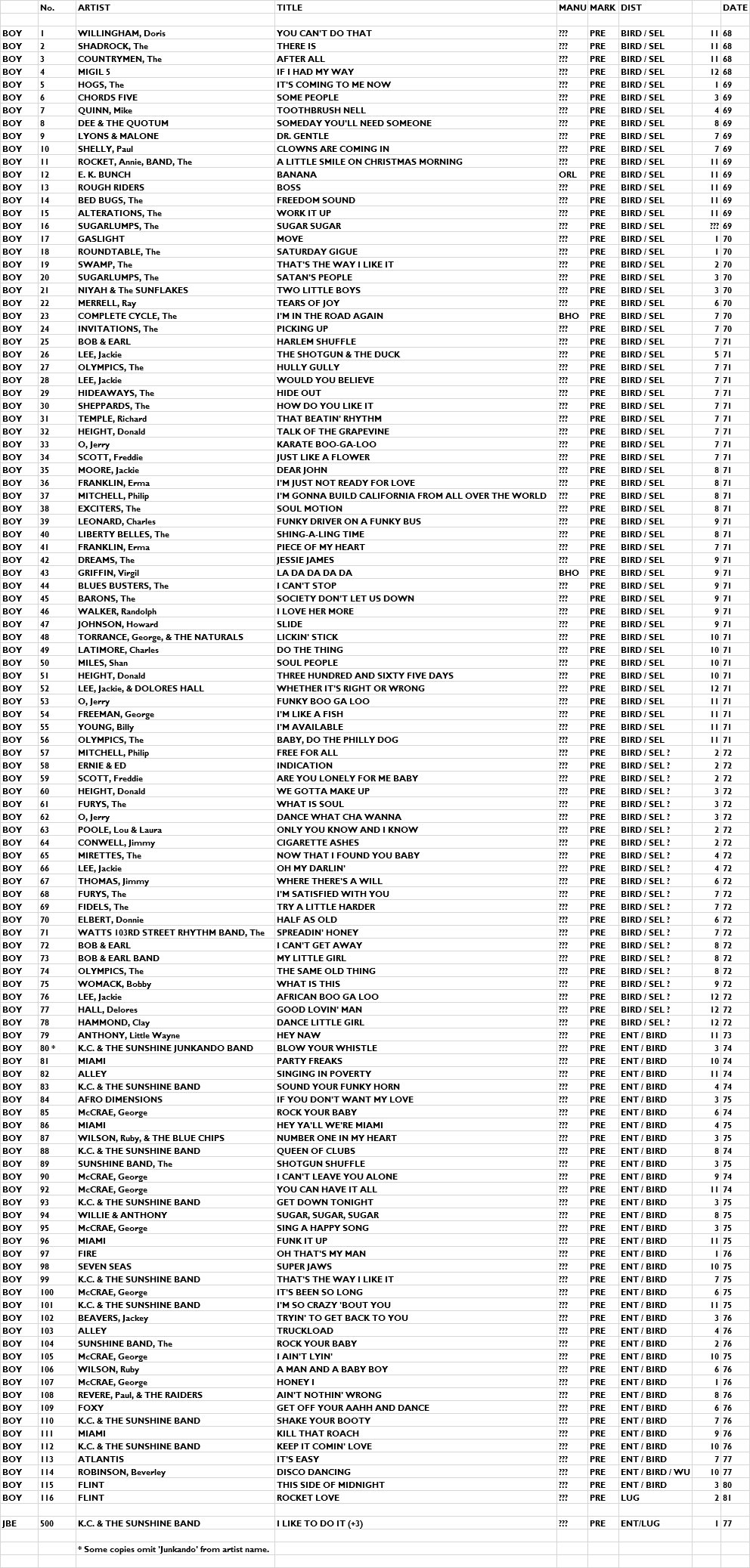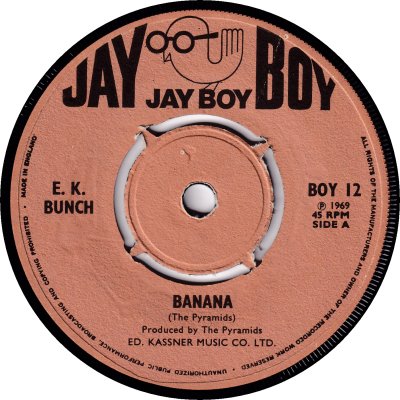
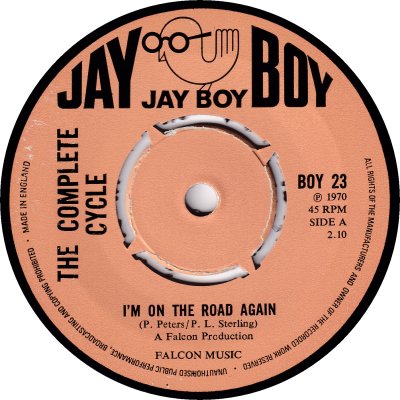
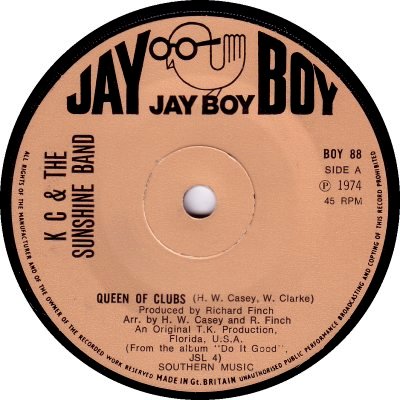
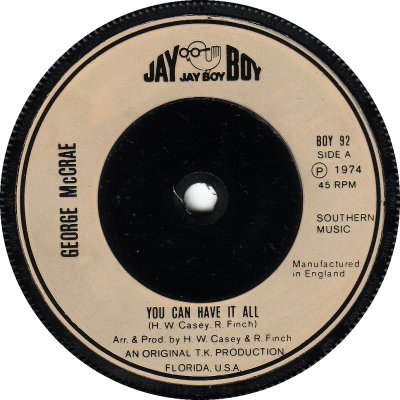
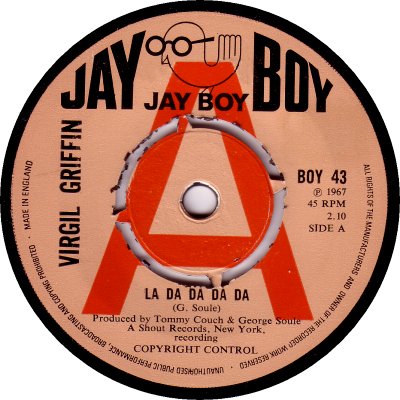
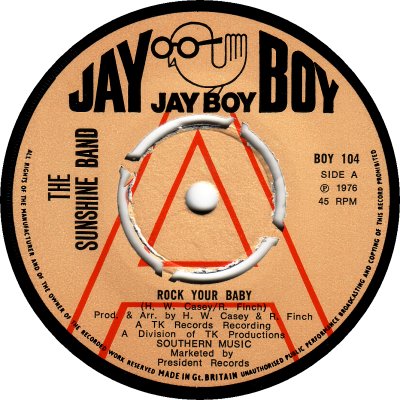
American in origin but lasting far longer in the UK than it did in the USA. Jay Boy's arrival in Britain was marked in 'Record Retailer' of the 23rd of October 1968, which said that Ed Kassner's President Records was launching it here. The article said that Jay Boy had been introduced in America by Martin Holzman, who had produced several records for Kassner's 'Seville' label (q.v.) in that country and had previously worked for Epic and Capitol. It added that the company's intention was to issue both product from the American label and material originating in the UK. 'Cash Box' of the 2nd of November offered a slightly different account: it said that Jay Boy had been founded by Holtzman and that President was launching a British and European branch; according to that report the company aimed to introduce new American and British acts. In the event the American version ran to just a couple of singles in 1968-69, leaving the UK Jay Boy to issue a mixture of licensed and in-house recordings. For the first couple of years of its existence it offered a mixture of Soul, Rock / Pop and Reggae, much the same sort of things that could be found on the main President label, but by 1971 it had evolved into President's Soul outlet. In that form it released a lot of fairly obscure singles licensed from American companies; they didn't sell well at the time, but many are now sought-after by Soul enthusiasts.
Jay Boy appears to have run out of steam in 1973, as it put out only a solitary single during that year and that not until November. In 1974, however, President gained the rights to the T.K. label (q.v.) of Miami, and Jay Boy was given a new lease of life as a vehicle for T.K. recordings. Happily the 'Miami Sound' caught on, both here and in the USA. George McCrae's 'Rock Your Baby (Parts 1 and 2)' (BOY-85; 6/74) gave Jay Boy not only its first hit but its first No.1; he followed it with two more Top 10 singles and four lesser hits. Another T.K. act, K.C. & The Sunshine Band, charted seven times for Jay Boy between August 1974 and December 1976; they too managed two Top 10 singles, but couldn't match McCrae's No.1. Unfortunately for President, T.K. moved to RCA in February 1977, after a slight wrangle between President and RCA over the rights was settled ('MW'; 6th November 1976). This robbed Jay Boy of its main source of recordings, and left it without much of a purpose. It managed just two releases in 1977, and in the autumn of that year 'Music Week' of the 3rd of September reported that a winding-up petition had been presented to the High Court by the MCPS, the claim being that the company owed money in the respect of copyrights owned by MCPS members. A couple of months later 'MW' of the 5th of November was able to state that the case had been withdrawn, as the missing money had been paid before the hearing started. In between those issues 'MW' of the 17th of September said in passing that Jay Boy had 'eventually' been sold to Ed Kassner, which suggests that Marvin Holtzman was at least a co-owner of it at the start. Despite not being wound up, Jay Boy was shelved at the end of 1977. It was taken off the self briefly in 1980-81 for a couple of singles by a band called Flint, but those proved to be the last.
One label design served Jay Boy throughout its existence, though there were changes in the layout. Initially the artist's name was printed horizontally in a small font (1), but in March 1970 the font increased in size and the orientation turned vertical (2) - presumably this made it easier to accommodate longer names. At the start of 1974 the perimeter credits were altered (3). Some popular singles came with injection moulded labels (4), thanks to contract pressings done by Phonodisc. EMI and Linguaphone also appear to have helped with the manufacture of Jay Boy's hits. I haven't had the chance to inspect many of the less big-selling singles but as Ed Kassner acquired a 50% share in British Homophone in November 1971 and went on to bring that company under the President umbrella it seems reasonable to guess that wherever possible manufacture was done by that firm. Demos came in the standard President family forms: at first they had a solid red 'A' (5), which changed to a hollow 'A' around May 1974 (6). There was never a Jay Boy company sleeve. Distribution was handled by the British Independent Record Distributors group, with Selecta sharing the job for the first few years. When President bought the bankrupt Enterprise Records, complete with its distribution network, in 1974, it was able to add its own efforts to those of the BIRD firms.
